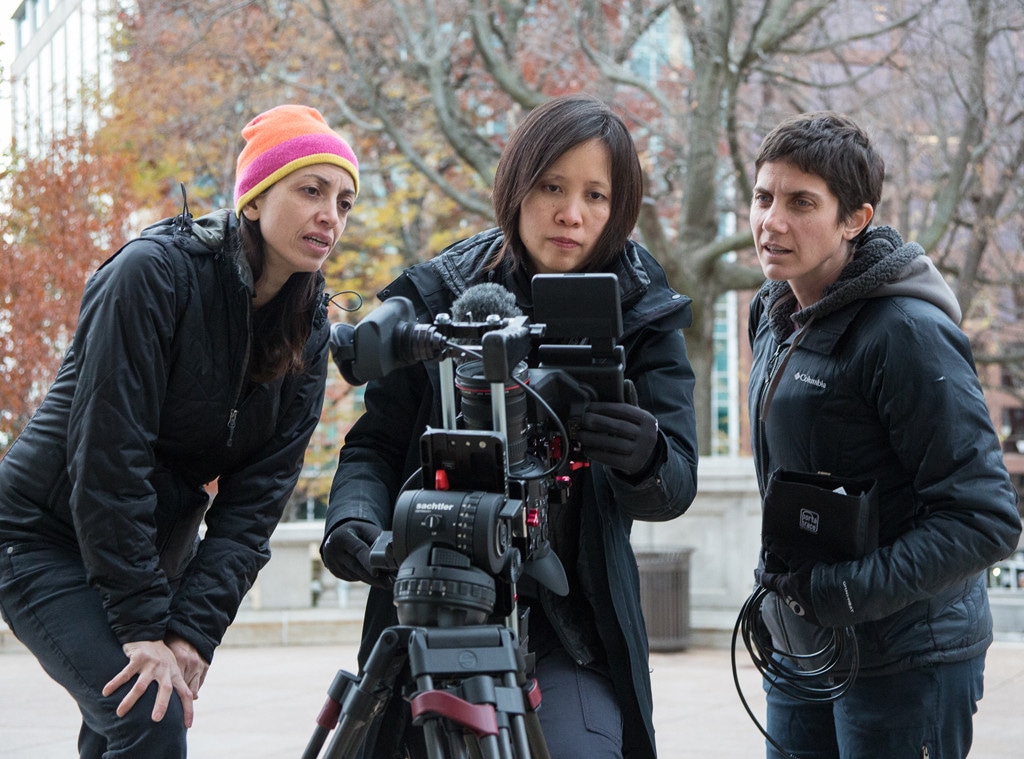 Netflix
NetflixThe Making a Murderer twists haven't stopped just because you've finished the 10-episode Netflix series. Filmmakers Moira Demos and Laura Ricciardi were on NBC's Today Tuesday and revealed they have been contacted by one of the jurors, who voted to convict during Steven Avery's murder trial.
"We were contacted by one of the jurors who sat through Steven Avery's trial and shared with us their thoughts, told us they believe Steven Avery was not proven guilty," Ricciardi said on Today. "They believe Steven was framed by law enforcement and if he receives a new trial, in their opinion, it should take place far away from Wisconsin."
The juror, according to the filmmakers, went on to explain what happened in the juror room and admitted he or she "feared for their personal safety" during the trial, Demos said. The juror also said if asked, he or she would reveal themselves as the source.
"The juror contacted us directly and told us the verdicts in Steven's trial were a compromise," Ricciardi revealed in a later Today interview. "That was the actual word the juror used and went on to describe the jurors ultimately trading votes in the jury room. Explicitly discussing, 'If you vote guilty on this count, I will vote not guilty on this count.' That was a significant revelation."
A big announcement from the filmmakers behind #MakingAMurderer: https://t.co/iB0rXpge6I
? TODAY (@TODAYshow) January 5, 2016Demos said they have not spoken to other jurors to confirm the story yet. "They told us really that they were afraid if they held out for a mistrial that it would be easy to identify which juror had done that and they were fearful for their own safety. What they explained to us is they believed that if there was a split verdict like this, that this would send a message to the appellate courts and they thought that Steven would get a new trial," she said. "That was sort of their plan and it didn't work out that way."
As for the reaction to their Netflix documentary series, the two said it's more than they could have ever dreamed of. Avery was convicted of the murder of Teresa Halbach and sentenced to life in prison shortly after being released from an 18-year prison stint for a wrongful conviction.
Over on Good Morning America, Ken Kratz, the attorney who prosecuted Avery, said the documentary series left out a bevy of key evidence, including that Avery called Halbach's job and specifically requested she be the one to come to his property to take photos for AutoTrader and also called her cell phone three times, twice with *67 to hide his identity, purposefully.
"This wasn't a documentary at all; This was a defense piece that was generated by and for Steven Avery by his defense team. It wasn't until Netflix decided to repackage this as a documentary that both sides were invited to participate," Kratz told Good Morning America. Kratz said the evidence included in the series was handpicked and other pieces ignored if it didn't fit with the narrative that Avery was the victim of a conspiracy and there was planted evidence.
"My biggest concern about this whole process was their decision then to call it a documentary...This docudrama, I think its called, itself is not going to form a basis of a new trial. It doesn't matter how much attention it receives, unless there's a legal challenge that comes forth, there shouldn't be a reason for a new trial," Kratz said.
(E! and NBC are both part of the NBCUniversal family.)